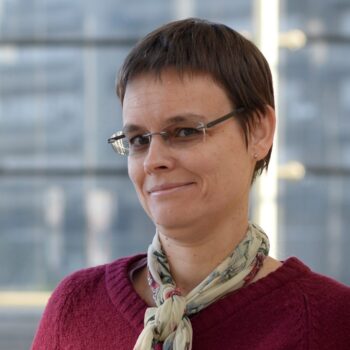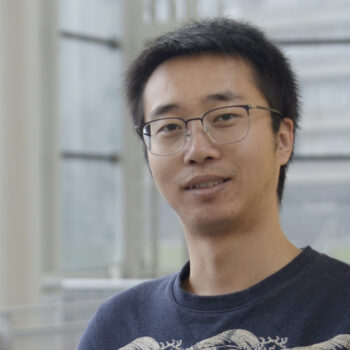Mehdi ‘Arash’ Feizpour Defends PhD on Bacterial Screening With Advanced Nanophotonics

Mehdi ‘Arash’ Feizpour has successfully defended his PhD thesis entitled “SERS-Based Lab-on-a-Chip for Machine-Learning-Enabled Bacterial Screening” under the supervision of Prof. Heidi Ottevaere, Prof. Wendy Meulebroeck, and Dr. Qing Liu.
Arash’s research paves the way for next-generation diagnostic tools by integrating surface-enhanced Raman spectroscopy (SERS), microfluidics, and machine learning into a powerful lab-on-a-chip system for rapid bacterial screening. Motivated by the global need for fast, label-free diagnostics and the multidisciplinary challenges the topic posed, Arash embraced a path that combined intellectual rigor with societal impact.
His PhD research led to several groundbreaking achievements. He developed a clear and systematic methodology for evaluating SERS substrates, contributing reproducibility and compatibility to a field still lacking standardization. Building on this foundation, Arash co-developed novel SERS-active substrates via direct laser writing, achieving a tenfold performance boost compared to commercial alternatives, while maintaining structural uniformity.
Challenging conventional paradigms, he introduced Curved SERS, demonstrating that strong performance is achievable even with feature sizes matching whole bacterial cells—an insight that could shift design strategies in the field. He also pioneered the first-ever integration of SERS into microfluidic chips using direct laser writing, enabling near-instantaneous biochemical readouts. To interpret these complex spectra, Arash transformed 1D SERS data into 2D images and developed a CNN-based image classifier for accurate and automated identification, thereby completing a fully integrated and bacterial screening pipeline. By providing fast, specific, and label-free diagnostics, his work offers a crucial step toward reducing the misuse of antibiotics in clinical practice.
Collaborating with institutions including VUB Hospital UZ Brussels, Ghent University, the University of Antwerp, ULB’s CREST group, the University of Namur, KU Leuven, Yerevan State University, and the University of Twente, Arash’s research delivers a robust response to both the fundamentals of nanophotonics and the growing threat of antimicrobial resistance (AMR).
Reflecting on his journey, Arash shares: “Looking back at my PhD journey, I am reminded that research is as much about community and shared aspirations as it is about individual effort.”
Recalling a defining moment, he adds: “I once stayed in the lab for two straight days, determined to finish an experiment. It failed. But as I left the innovation center, I knew I hadn’t done it for praise or affirmation—I did it because I’m deeply passionate about what I do.”

Next Steps and Future Aspirations
Following his defense, Arash continues his work as a postdoctoral researcher within the Biophotonics team at B-PHOT. He remains deeply involved in screening biomedically relevant components using SERS, now focusing on single-cell SERS studies through a new PhotonHub project, continuing his teaching activities, and laying the groundwork for future entrepreneurial ventures.
“On top of the technical skills, my PhD taught me how to manage heavy workloads and large-scale collaborations—skills I will carry forward to lead even more ambitious projects, maybe even a spin-off,” he says.
Arash’s journey is a testament to how photonics, precision engineering, and AI can come together to reshape the future of healthcare diagnostics.







